What can I use as a substitute for white balsamic vinegar?
Do you need a substitute for white balsamic vinegar? White balsamic vinegar is commonly used as a condiment or ingredient in various dishes, but what happens when you have none left? Here is our list of the top 6 substitutes for white balsamic vinegar. So in no particular order as an alternative to white balsamic vinger try using – balsamic vinegar, white wine vinegar, rice wine vinegar, apple cider vinegar & honey, sherry or malt vinegar with sugar.
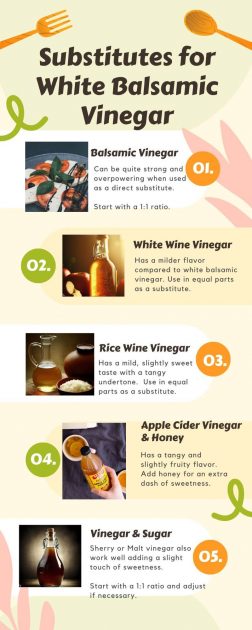
What is white balsamic vinegar?
White balsamic vinegar is a milder and slightly sweeter version of traditional balsamic vinegar. It is made from white grape must (freshly crushed grape juice) and is aged in wooden barrels, similar to its darker counterpart. However, the aging process is shorter, resulting in a lighter color and less intense flavor.
It is commonly used as a condiment or ingredient in various dishes. You can use it as a salad dressing, as a base for marinades, or in sauces and glazes. You can also drizzle it over roasted vegetables, add it into fruit salads, or use it in fruit-based desserts and compotes.
Remember to taste and adjust the amount of vinegar according to your preference, as its flavor can vary depending on the brand and aging process.
Okay, before we look at your white balsamic vinegar substitute options, let’s deal with that empty cupboard situation!
Where can I buy white balsamic vinegar?
If you want to be more prepared and ensure you don’t run out of white balsamic vinegar then you should stock up now.
Nowadays most delicatessens and general supermarkets stock a wide variety of white balsamic vinegar. Or if you prefer you can also purchase it on-line. Here is a link for ‘California O white balsamic vinegar’ – enjoy.
So why not jump on and place your order today.
STOCK UP NOW!
Californian O White Balsamic Vinegar – 10.1 fl oz
Light and fresh taste. Sprinkle over salads for a delicious flavor hit.
Made from cold-pressed muscat juice.
What can I substitute for white balsamic vinegar?
Here are some of the best ingredients to substitute the flavor and role that white balsamic vinegar provides in your recipes.
- Balsamic vinegar
- White wine vinegar
- Rice wine vinegar
- Apple Cider vinegar & honey
- Sherry vinegar
- Malt vinegar
White balsamic vinegar substitutes
Balsamic Vinegar as a substitute for White Balsamic Vinegar
Balsamic vinegar can be used as a substitute for white balsamic vinegar in certain recipes, but it’s important to note that they have distinct flavors. It has a deeper, richer taste with a hint of sweetness and a more intense flavor compared to white balsamic vinegar. When using balsamic vinegar as a substitute, consider the following tips:
- Balsamic vinegar can be quite strong and overpowering when used as a direct substitute. To mellow its flavor, you can dilute it with a bit of water or a neutral vinegar like white wine vinegar. Start with a 1:1 ratio of balsamic vinegar and water or white wine vinegar, and adjust according to taste.
- White balsamic vinegar has a mild sweetness, which can be replicated by adding a small amount of sweetener to the balsamic vinegar substitute. Options like honey, maple syrup, or even a pinch of sugar can help balance the tartness and mimic the sweet undertones of white balsamic vinegar.
- Use in savory dishes, dressings, marinades, and glazes. Its rich and tangy flavor can work well in these applications, adding depth and complexity. However, for recipes where the milder and slightly sweet taste is desired, the substitution may not be ideal.
- Balsamic vinegar has a dark brown color, which can differ from the clear or pale golden hue of white balsamic vinegar. If the appearance of the dish is important, be aware that the substitution may result in a darker color. In some recipes, this may not be a concern, but in others, it could affect the visual presentation.
- Due to the stronger flavor of balsamic vinegar, you might want to use less balsamic vinegar than the amount specified in the recipe. Start with a smaller quantity and taste as you go, adjusting according to your preferences.
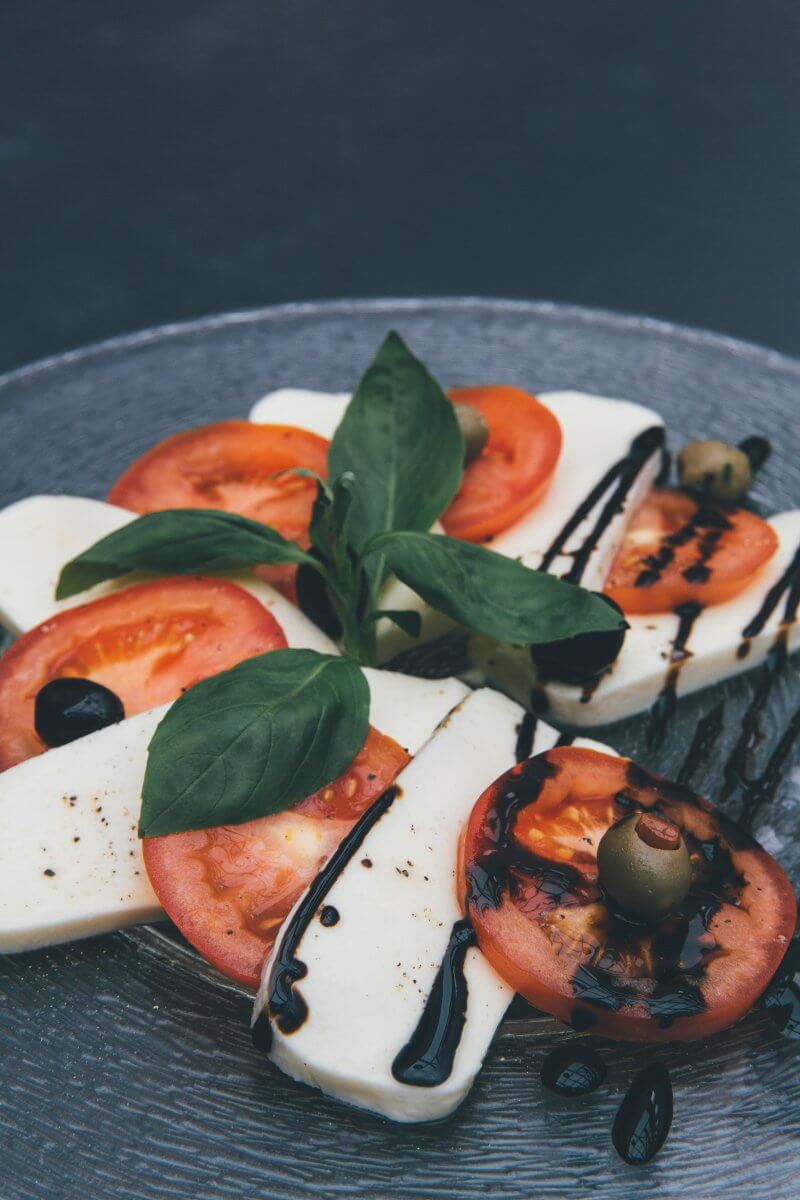
White wine vinegar as a substitute for White Balsamic Vinegar
White wine vinegar can be a suitable substitute for white balsamic vinegar due to its similar acidity level and lighter flavor profile. While they are not identical, white wine vinegar can provide a comparable tanginess and acidity. Here are a few tips when substituting white wine vinegar for white balsamic vinegar:
- In most cases, you can substitute white wine vinegar for white balsamic vinegar in equal amounts. If a recipe calls for 1 tablespoon of white balsamic vinegar, you can use 1 tablespoon of white wine vinegar instead.
- White wine vinegar has a milder flavor compared to white balsamic vinegar. If you prefer a slightly sweeter taste, you can add a small amount of sweetener like honey or sugar to mimic the sweetness of white balsamic vinegar. Adjust according to taste, but start with a smaller amount and add more if needed.
- Use in dressings, marinades, sauces, and vinaigrettes. Its lighter and tangy flavor can work well in these applications, providing a subtle acidity. However, keep in mind that the flavor of white wine vinegar may not have the same complexity as white balsamic vinegar in certain recipes that specifically call for its unique taste.
- White wine vinegar and white balsamic vinegar have similar acidity levels, but if a recipe relies on the specific acidity of white balsamic vinegar, you may need to adjust by adding a small amount of lemon juice or another mild vinegar to the white wine vinegar substitute.
- White wine vinegar is clear or pale yellow in color, which is similar to the appearance of white balsamic vinegar. The substitution should not significantly impact the color of your dish.
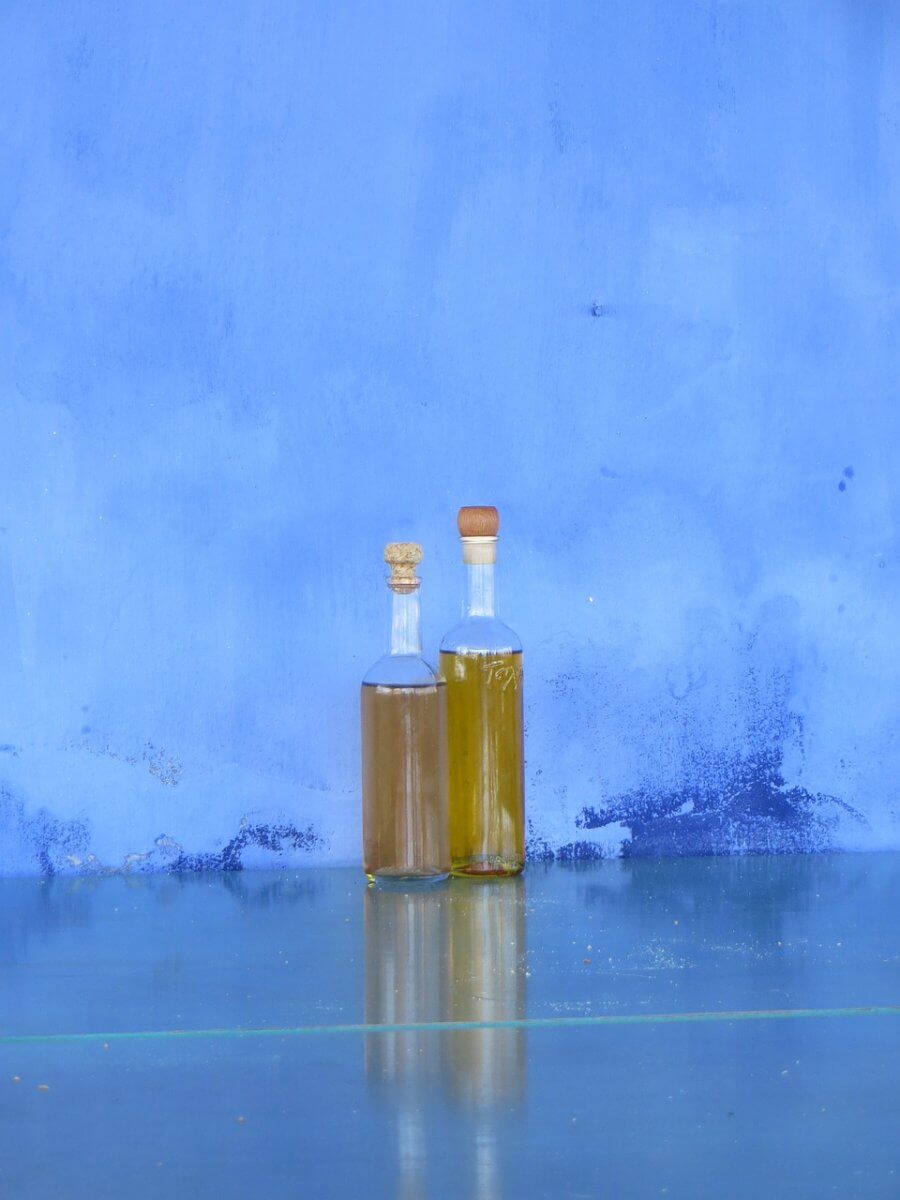
Rice wine vinegar as a substitute for White Balsamic Vinegar
Rice wine vinegar can be used as a substitute for white balsamic vinegar, but it’s important to note that they have distinct flavors. It has a mild, slightly sweet taste with a tangy undertone, while white balsamic vinegar has a milder, sweet and acidic flavor. When using rice wine vinegar as a substitute, consider the following tips:
- In most cases, you can substitute rice wine vinegar for white balsamic vinegar in equal amounts. If a recipe calls for 1 tablespoon of white balsamic vinegar, you can use 1 tablespoon of rice wine vinegar instead.
- Rice wine vinegar has a milder flavor compared to other vinegars, including white balsamic vinegar. If you prefer a slightly sweeter taste, you can add a small amount of sweetener like honey or sugar to mimic the sweetness of white balsamic vinegar.
- Use in Asian cuisine, particularly in stir-fries, dressings, marinades, and pickles. Its mild and tangy flavor can work well in these dishes, adding a subtle zing. However, for recipes that specifically call for the unique taste of white balsamic vinegar, the substitution may not be as suitable.
- Rice wine vinegar and white balsamic vinegar have different acidity levels. If a recipe relies on the acidity of white balsamic vinegar, you may need to adjust the acidity by adding a small amount of lemon juice or another mild vinegar to the rice wine vinegar substitute.
- Rice wine vinegar is typically clear or pale yellow in color, which can differ from the clear or pale golden hue of white balsamic vinegar. If the appearance of the dish is important, be aware that the substitution may result in a slight color variation.
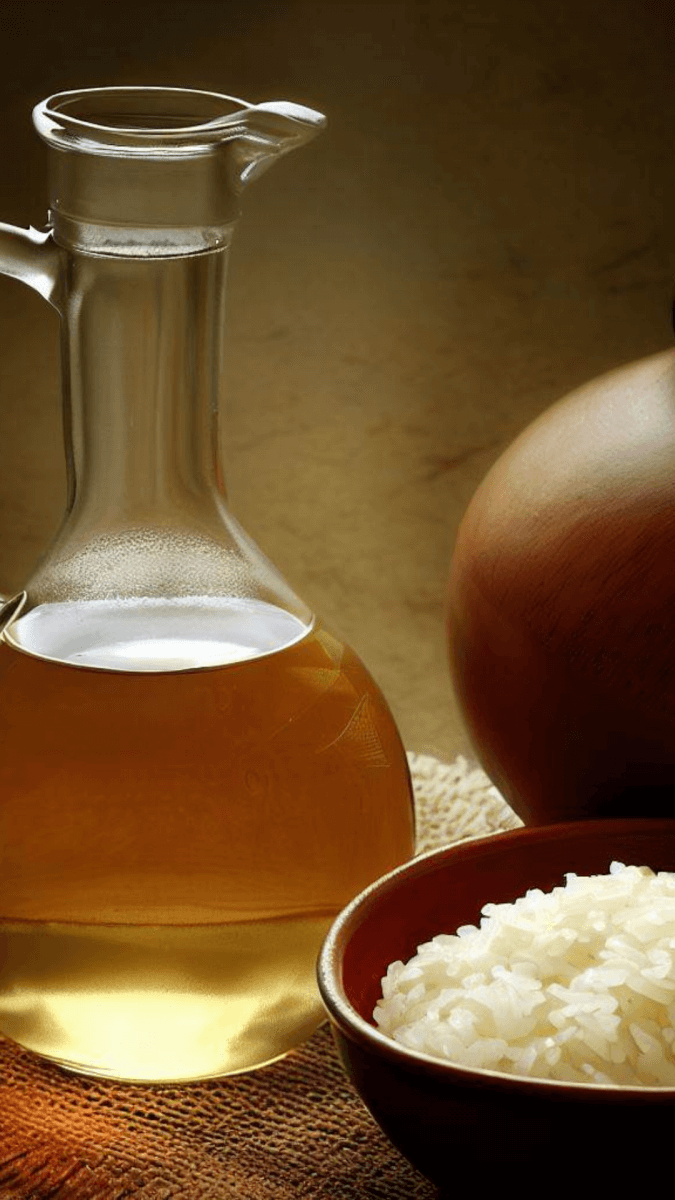
Apple Cider vinegar & honey
Apple cider vinegar can be used as a substitute for white balsamic vinegar in many recipes. Just remember that the flavors are quite different. It has a tangy and slightly fruity flavor, while white balsamic vinegar has a milder, sweet and acidic taste. When using apple cider vinegar as a substitute, consider the following tips:
- Apple cider vinegar tends to have a stronger flavor. To reduce its intensity, you can dilute it with a bit of water. Start by using a 1:1 ratio of apple cider vinegar and water, and adjust according to taste.
- White balsamic vinegar has a mild sweetness. You can replicate this by adding a small amount of sweetener to the apple cider vinegar substitute. Options like honey, maple syrup, or even a pinch of sugar can help balance the tartness.
- Use in dressings, marinades, sauces, and pickling recipes. Its tangy flavor can work well in these applications, adding a zesty kick. However, in delicate dishes where the milder flavor is desired, the substitution may not be as suitable.
- Since apple cider vinegar has a distinct flavor, it may alter the taste of your dish. Start by using a smaller quantity of apple cider vinegar than the amount specified for white balsamic vinegar, and adjust as needed. Taste as you go and make any necessary flavor adjustments to achieve the desired balance.
- Apple cider vinegar has a light amber color, which can differ from the clear or pale golden hue of white balsamic vinegar. If the appearance of the dish is important, be aware that the substitution may result in a slight color variation.
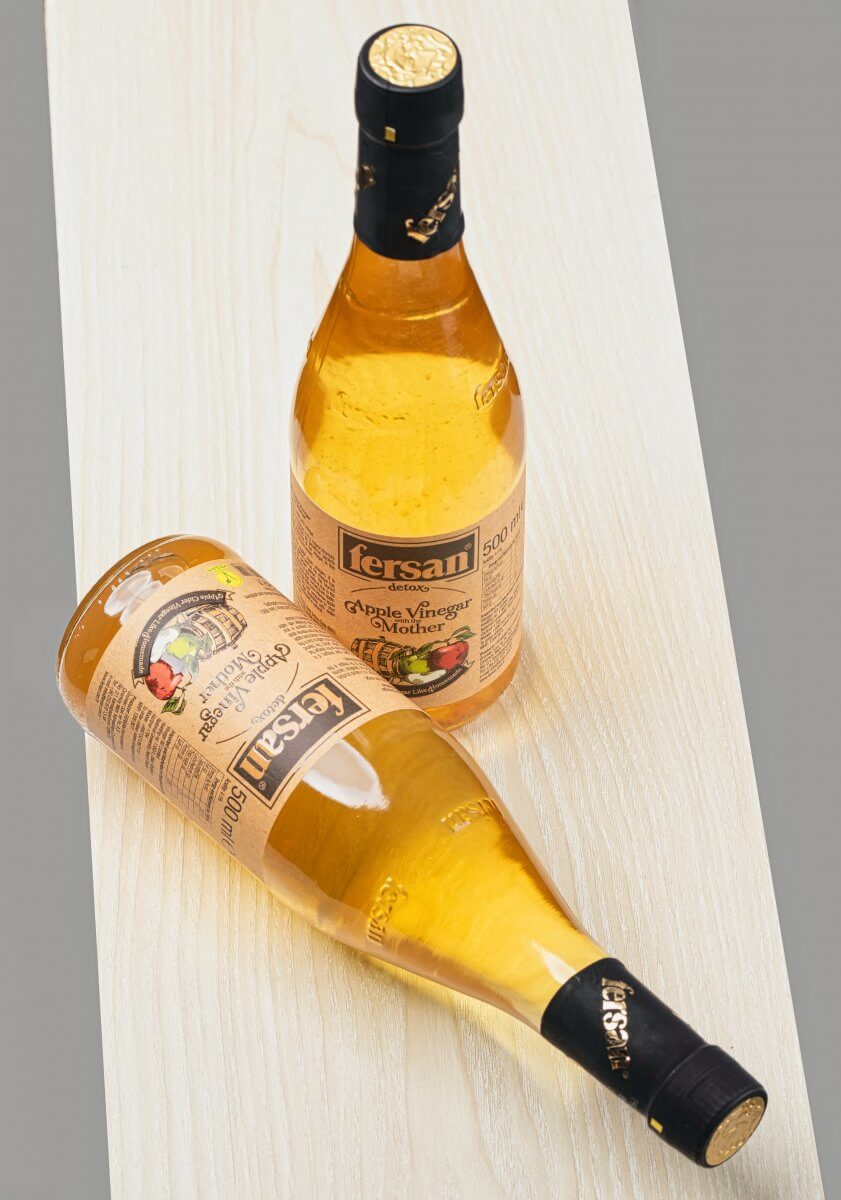
Sherry vinegar
Sherry vinegar can be a good substitute for white balsamic vinegar due to its similar flavor profile and acidity. While they are not identical, sherry vinegar can provide a comparable tanginess and mild sweetness. Here are a few tips when substituting sherry vinegar for white balsamic vinegar:
- In most cases, you can substitute sherry vinegar for white balsamic vinegar in equal amounts. If a recipe calls for 1 tablespoon of white balsamic vinegar, you can use 1 tablespoon of sherry vinegar instead.
- Sherry vinegar has a slightly more robust flavor therefore, you might want to use a little less sherry vinegar than the amount specified. Start with the same amount and adjust to taste as you go.
- Both sherry vinegar and white balsamic vinegar have a similar acidity level, so you won’t need to adjust the acidity in your recipe. This makes sherry vinegar a reliable substitute in terms of maintaining the overall balance of flavors.
- Keep in mind that sherry vinegar is darker in color, ranging from amber to deep brown. If the appearance of the dish is important, the darker color of sherry vinegar may affect the final presentation. However, if the color isn’t a significant factor, it shouldn’t impact the taste or texture of the dish.
- Sherry vinegar works well in many dishes, including dressings, sauces, marinades, and even desserts. Its complex flavor profile adds depth to recipes, making it a versatile substitute for white balsamic vinegar. Try adding a touch of sugar if you need a more mellow flavor.
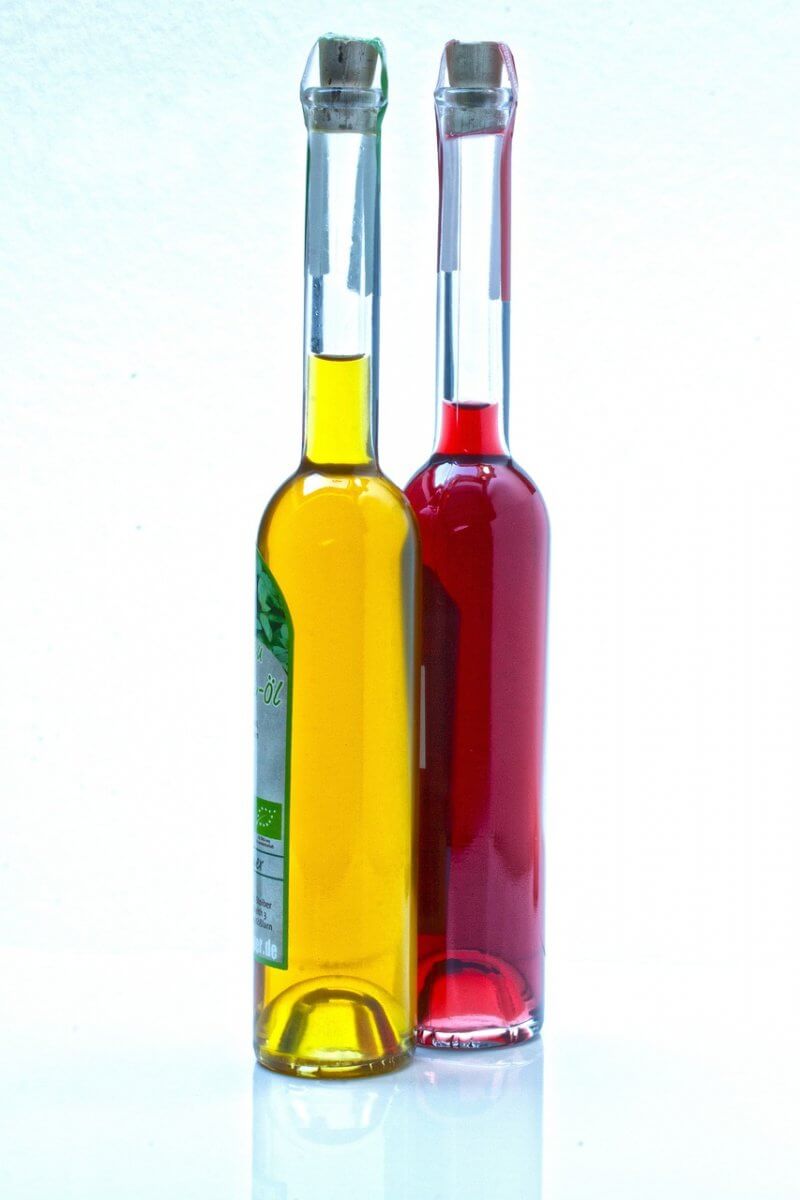
Malt vinegar
Malt vinegar can be used as a substitute for white balsamic vinegar in some recipes. White balsamic vinegar has a mild, slightly sweet taste, while malt vinegar has a stronger, malted barley flavor. The substitution may work well in certain dishes where the flavor profile of malt vinegar complements the other ingredients. Here are a few considerations and suggestions when using malt vinegar as a substitute:
- Keep in mind that malt vinegar has a more pronounced flavor compared to white balsamic vinegar. Therefore, you may want to use less malt vinegar than the amount specified for white balsamic vinegar in the recipe. You can also try adding some sugar to ease out the tartness. Start with a smaller quantity and taste as you go, adjusting according to your preferences.
- White balsamic vinegar is clear or pale golden, whereas malt vinegar is dark brown. If the appearance of the dish is important, consider whether the darker color of malt vinegar will impact the final presentation.
- Use in dishes like pickles, chutneys, and sauces. This allows its distinctive flavor to complement the overall taste. It may work well in recipes that benefit from a tangy, malted taste. However, for delicate dishes where the subtler flavor of white balsamic vinegar is desired, the substitution might not be ideal. This would be for dishes such as such as light dressings or marinades
- If you’re uncertain about the flavor combination, you can always test a small amount of malt vinegar in a separate portion of the recipe. Then if you are happy with the flavor profile you can use it in your main recipe.
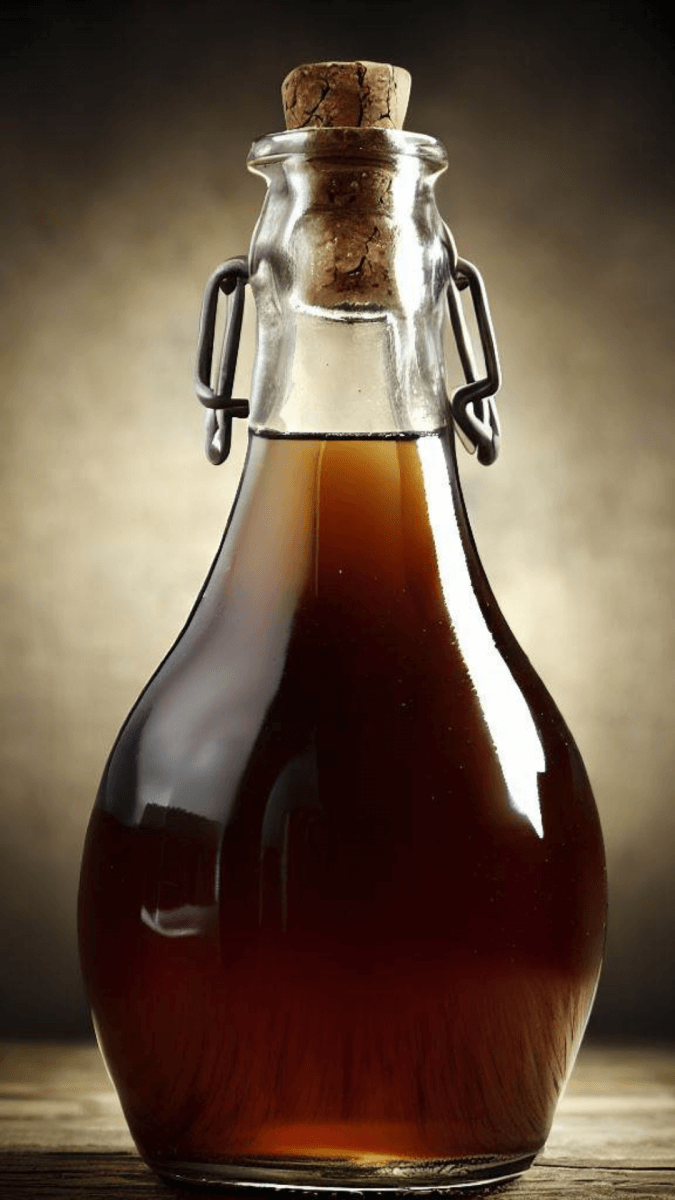
FAQs
What’s the difference between white balsamic vinegar and regular balsamic vinegar?
The main differences between white balsamic vinegar and regular balsamic vinegar lie in their color, flavor, and how they are made. White balsamic vinegar is light golden or pale amber in color, while regular balsamic vinegar is dark brown. The difference in color is due to how they are processed and aged.
White balsamic vinegar tends to have a milder and slightly sweeter flavor compared to regular balsamic vinegar. It still has the characteristic tanginess of vinegar, but it’s less intense and doesn’t have the same depth of flavor as traditional balsamic vinegar. Regular balsamic vinegar has a complex, rich flavor with notes of fruitiness, sweetness, and acidity, developed through the aging process in wooden barrels.
Now, both white and regular balsamic vinegars start with the juice of pressed grapes, but they both undergo different processes. Regular balsamic vinegar is aged for an extended period (often years) in wooden barrels, where it undergoes fermentation and concentration. White balsamic vinegar, on the other hand, is typically aged for a shorter period in stainless steel or other non-reactive containers to prevent it from darkening. It may also be processed differently to retain its lighter color and milder flavor.
So there you have it – white balsamic vinegar is a lighter, milder alternative to traditional balsamic vinegar, with a sweeter taste and lighter color. It’s often used in dishes where you want the tangy flavor of vinegar without the dark color or intense flavor of regular balsamic vinegar, such as dressings, marinades, or light-colored sauces. Regular balsamic vinegar, with its complex flavor and deep color, is prized for its versatility in both sweet and savory dishes, as well as its use as a condiment or finishing touch.
How do you make white vinegar taste like balsamic?
While you can’t exactly replicate the complex flavor of traditional balsamic vinegar with white vinegar, you can create a similar flavor profile just by adding a few ingredients to enhance its taste. Here’s a simple method to make white vinegar taste more like balsamic vinegar:
Ingredients:
- 1 cup of white vinegar
- 2 tablespoons of brown sugar or honey
- 1 teaspoon of soy sauce
- 1/2 teaspoon of Dijon mustard
- 1/4 teaspoon of garlic powder
- 1/4 teaspoon of onion powder
- Pinch of salt and pepper
Instructions:
- In a small saucepan, combine the white vinegar, brown sugar or honey, soy sauce, Dijon mustard, garlic powder, onion powder, salt, and pepper.
- Heat the mixture over medium heat, stirring constantly, until the sugar or honey is fully dissolved and the mixture is heated through. Be careful not to let it boil.
- Once the mixture is heated through and well combined, remove it from the heat and let it cool to room temperature.
- Taste the mixture and adjust the seasonings if needed, adding more sugar or honey for sweetness, or more soy sauce for depth of flavor.
- Once cooled, transfer the mixture to a clean bottle or jar with a tight-fitting lid for storage.
- Allow the mixture to sit at room temperature for at least a few hours or overnight to allow the flavors to meld together before using.
This homemade balsamic-style vinegar can be used in dressings, marinades, sauces, or drizzled over salads or roasted vegetables for a touch of tangy sweetness. While it won’t be exactly like traditional balsamic vinegar, it will provide a similar flavor profile and depth to your dishes. Adjust the ingredients and proportions to suit your taste preferences and enjoy.
Summary for white balsamic vinegar substitutes
Okay – that’s you all sorted with suitable substitutes for white balsamic vinegar.
In conclusion, while there are various substitutes for white balsamic vinegar, each has its own distinct flavor profile and characteristics. Here is a summary of the substitutes discussed:
- Malt Vinegar: Can be used as a substitute, but it has a stronger malted barley flavor. It works well in dishes where the malted taste complements the other ingredients.
- Sherry Vinegar: A good substitute with a similar tanginess and mild sweetness. Use in equal amounts, but remember slight adjustments may be needed based on personal taste preferences.
- Apple Cider Vinegar: Offers a tangy and slightly fruity flavor. Diluting it with water and adding a sweetener can help mimic the mild sweetness of white balsamic vinegar.
- Rice Wine Vinegar: A suitable substitute with a mild, slightly sweet taste. Adjustments in flavor and acidity may be necessary depending on the recipe.
- White Wine Vinegar: A close substitute with a lighter flavor profile and similar acidity level. Use it in equal amounts and it will work well in dressings, marinades, and sauces.
- Balsamic Vinegar: Offers a richer, intense flavor and dark color. Diluting and sweetening it can help reduce its strong taste and mimic the sweetness of white balsamic vinegar.
When substituting any vinegar for white balsamic vinegar, consider the specific recipe, flavor requirements, and personal preferences. Experimentation and adjustments may be necessary to achieve the desired taste and balance in your dishes.
We have gathered together a lot more facts on ingredients such as herbs, spices, oils, nuts, etc. if you would like to learn some more.
Or if you need to swap out another ingredient have a look at our Substitutes section.

